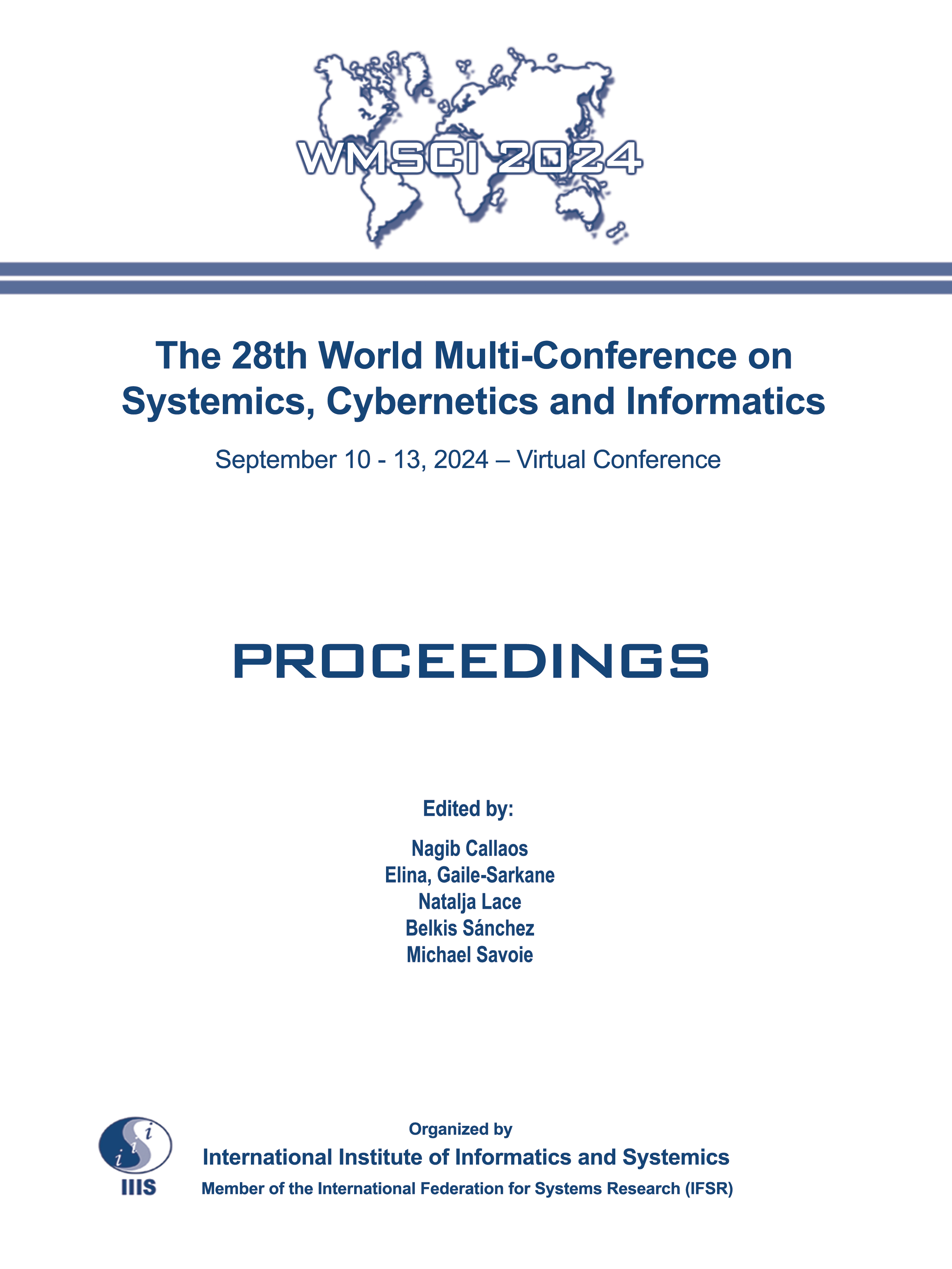2024 Summer Conferences Proceedings

|
Sense-Making in Embodied AI – Towards Autopoietic Chemical AI
Sergio Rubin, Pasquale Stano, Andrea Roli, Luisa Damiano
Proceedings of the 28th World Multi-Conference on Systemics, Cybernetics and Informatics: WMSCI 2024, pp. 85-91 (2024); https://doi.org/10.54808/WMSCI2024.01.85
|
The 28th World Multi-Conference on Systemics, Cybernetics and Informatics: WMSCI 2024
Virtual Conference September 10 - 13, 2024 Proceedings of WMSCI 2024 ISSN: 2771-0947 (Print) ISBN (Volume): 978-1-950492-79-4 (Print) |
|
Abstract
Experimental Epistemology (EE) – i.e., the branch of cybernetic epistemology founded by Warren McCulloch [1] to experimentally explore “embodiments of mind” – still has significant potential to be expressed in AI. This is the basic premise of our work, which recognizes in one of EE's most interesting affiliations, namely Humberto Maturana and Francisco Varela’s [2] autopoietic approach to the description of the living organization, a framework useful to improve contemporary Embodied AI's modeling of natural cognition. Our main goal is to incorporate the autopoietic theoretical model of the biological organization in EAI’s synthetic models of natural cognitive systems, in order to artificially generate forms of autonomy and sense-making similar to those of living systems. The core novelty of our research program relies on the hypothesis that, to be effective, this operation cannot be realized in software or hardware, and requires wetware modeling. We plan to use Synthetic Biology (SB)’s techniques to develop wetware models of minimal living-like systems, such as closed chemical reactions based on chemical organization theory and active inference (i.e., the free energy principle), to test whether they can implement sensory-motor loops arising from selfproduction and agent-environment interactions, and generating minimal forms of autonomous (chemically-)embodied cognition.
|
||




